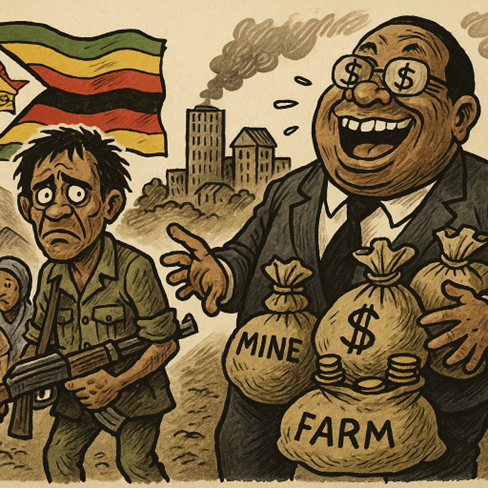
Solo Musaigwa
The liberation war was fought on a simple but powerful idea: Zimbabwe belongs to its people. The land, the mines, the wealth all of it had to be reclaimed from Rhodesian settlers who built fortunes on the backs of African labour. Guerrillas risked everything to end a system where a white minority looted the country while the majority lived in poverty.
But forty-five years later, the cruellest irony has unfolded. Zimbabwe is still being looted only now the looters are not Rhodesian settlers but our own leaders. The new oppressors speak the language of liberation, wave the flag of independence, and boast of sovereignty, but they have become worse than Rhodesia. At least the settlers never pretended to be liberators. Today’s thieves hide behind the blood of our heroes.
Corruption is the new colonialism. It robs more brutally than Smith’s tax laws, exploits more shamelessly than settler farms, and enslaves more cunningly than Rhodesian pass laws. Where Rhodesia built “protected villages” to control Africans, today’s rulers build cartels and patronage networks to control resources. Where Rhodesians took land for themselves, today’s elites grab farms, mines, and tenders for personal gain. The enemy no longer wears khaki uniforms and speaks with a white settler’s accent. The enemy sits in cabinet meetings, parliament benches, and party conferences.
Look at the gold scandals, where tonnes of our heritage are smuggled to Dubai while the Reserve Bank claims ignorance. Look at the diamond fields of Marange, where billions vanished and villagers were left with nothing but poisoned water and graves. Look at the tender scams where roads, dams, and power plants are promised, money disappears, and nothing is built. This is theft on a scale that would make Ian Smith blush.
And while the elites loot, the people starve. Hospitals have no medicine, schools crumble, and workers are paid in wages that vanish before payday. Teachers strike, nurses leave, and graduates sell tomatoes. The liberation war was fought to end exploitation, yet the exploitation has deepened. The settler robbed Zimbabwe to enrich his race. Today’s rulers rob Zimbabwe to enrich themselves. Which is worse?
During the war, Mugabe thundered that “stooges and traitors will be spat upon by their own children.” That prophecy is being fulfilled. Zimbabwe’s youth, the sons and daughters of independence have nothing but contempt for leaders who steal in their name. They spit not with words but with their feet, fleeing to South Africa, Britain, and anywhere that offers escape. Independence is hollow when the children of the nation run away from it.
The tragedy of corruption is not just in stolen billions. It is in stolen futures. Every dollar looted is a clinic unbuilt, a school unfurnished, a job destroyed. Every corrupt deal is a betrayal of the fighters who died in the bush, of the peasants who fed guerrillas, of the mothers who hid sons and daughters from Rhodesian patrols. Corruption is treason against the liberation struggle.
Related Stories
Worse still, corruption has become institutionalised. It is no longer hidden in shadows. It is flaunted in convoys of imported cars, in mansions with twenty bedrooms, in weddings that cost millions while citizens cannot buy bread. Ministers boast while citizens beg. This is not governance. It is gangsterism in the name of liberation.
The excuse is always the same. Sanctions, external enemies, hostile Western powers. But sanctions do not explain why diamond billions disappeared. Sanctions do not explain why hospitals collapse while ministers fly abroad for treatment. Sanctions do not explain why a nation so rich in resources is so poor in reality. The truth is simpler. Corruption has eaten the state from within, leaving nothing for the people.
History has no patience for betrayers. Ian Smith believed his Rhodesia would last a thousand years. It crumbled in seven. Abel Muzorewa believed he could be prime minister under Smith’s leash. His government collapsed in months. Today’s rulers believe they can steal forever, protected by fear and patronage. They forget that corruption breeds rage, and rage breeds revolution.
Zimbabweans did not fight to replace one master with another. They did not fight so that their children would grow up poor in a rich land. They did not fight for an independence that is little more than the freedom of elites to loot. The liberation struggle promised dignity. Corruption has delivered humiliation.
It is time to name corruption for what it is: the worst betrayal of independence. Worse than Rhodesia, because it wears the mask of liberation while strangling the very people it claims to have freed.
The people of Zimbabwe are not blind. They see who drives the imported cars, who smuggles the gold, who builds mansions while villages thirst. And just as the people once rose against Rhodesia, they will one day rise against this betrayal.
Liberation was never meant to end in looting. Independence was never meant to be a feeding trough for the few. True freedom will only come when corruption is treated not as politics but as treason punished with the same fury once reserved for Rhodesian collaborators.
Until then, Zimbabwe remains a country liberated in name but enslaved in practice , a nation where the worst thieves are those who claim to be heroes.
Solo Musaigwa is a Zimbabwean writer, political commentator, and social critic whose work blends history, prophecy, and people’s voices into sharp indictments of power. He writes from within the traditions of the liberation struggle, amplifying the voices of mothers, widows, youth, exiles, and ancestors who demand bread, dignity, and freedom. He can be contacted on solomusaigwa.writer@gmail.com













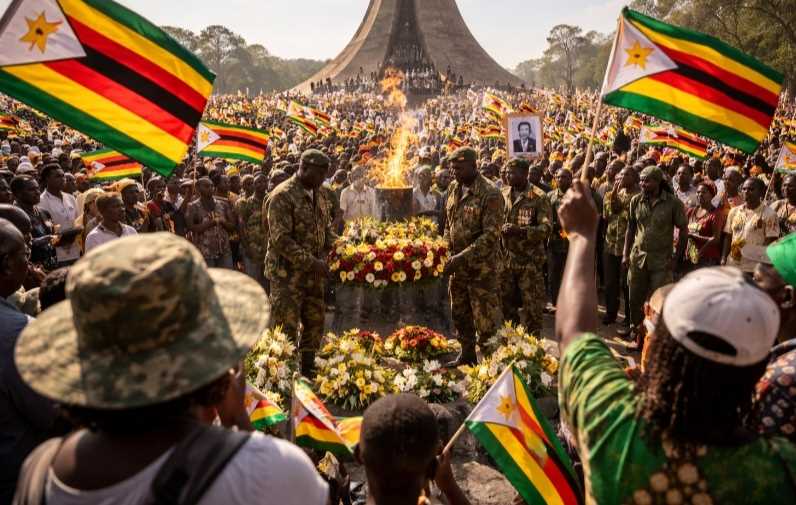

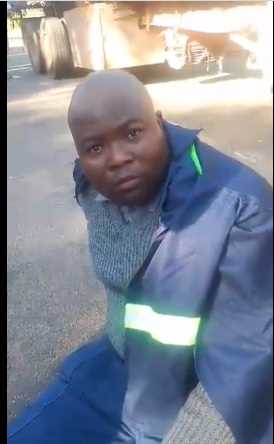

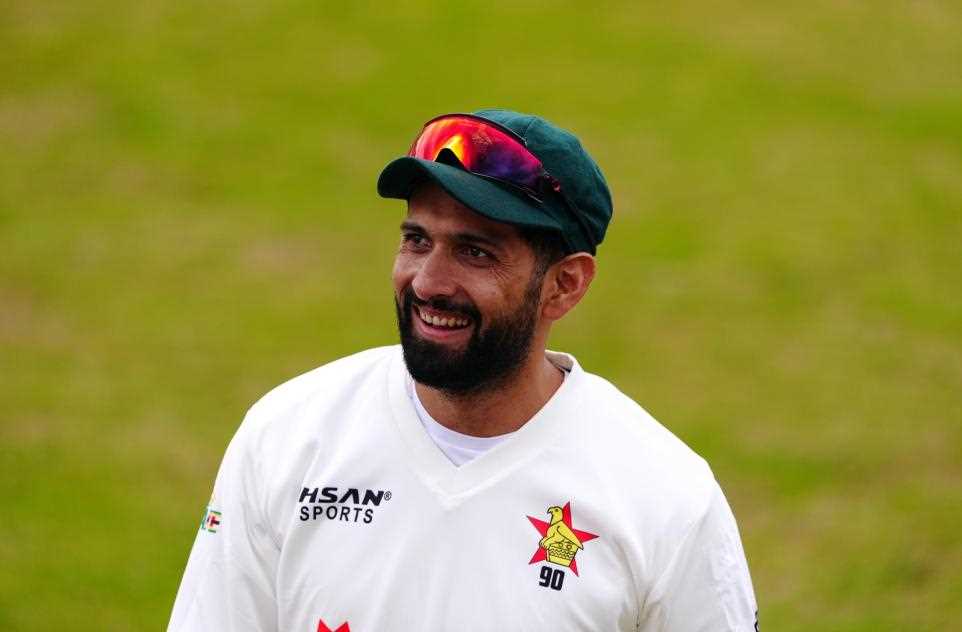
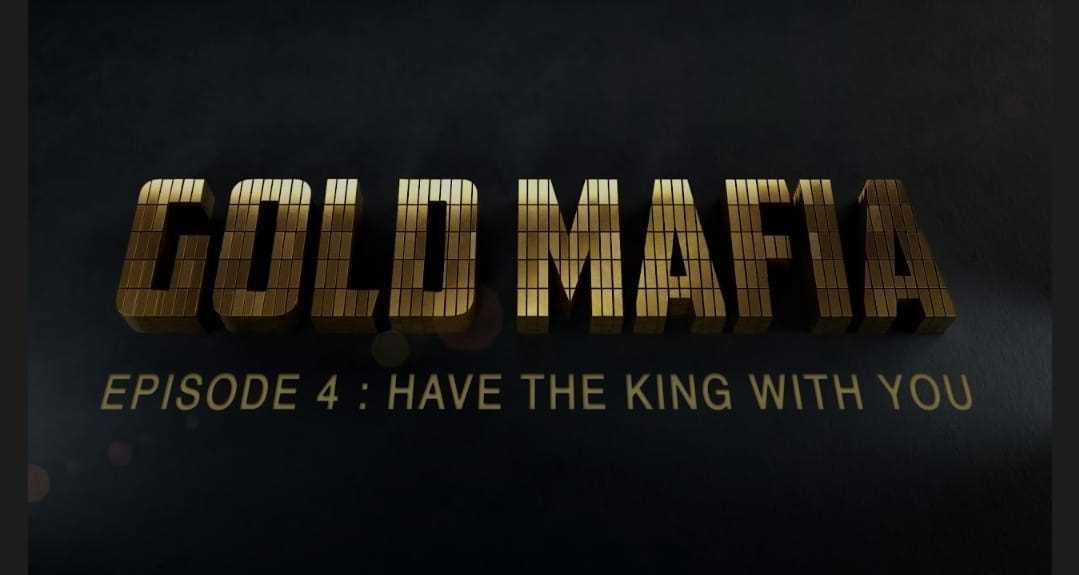


Leave Comments